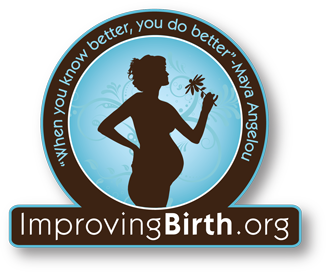I had intended not to post today, but I just heard that today, September 3, is ImprovingBirth.org’s “National Rally for Change” day; they’re calling for a “full scale birth revolution on Labor Day” to launch a week of “Empowered Birth Awareness,” and I’d like to stand with them on this.
ImprovingBirth.org emphasizes that these rallies, which will be taking place in more than 100 cities today (often in front of hospitals), are not protests. Instead, they are an opportunity to raise awareness about something called “Evidence Based Maternity Care,” which is very simply, this:
“Evidence-based maternity care” means that the care that is provided has been proven by reliable research to be beneficial to mothers and babies, reducing the incidences of complications, injury and death.
The biggest example of care that is not “evidence based” is probably C-section. Now I want to be clear: C-sections save lives when they are necessary.
However (you knew there was a however) they are almost certainly performed more often than necessary. The WHO says no country is justified in having a C-section rate over 15%. The US C-section rate is 33% (It was 4.6% in the early 1960s.)
If that was leading to better outcomes for mothers and babies, I don’t think anyone would be complaining.
The truth is, though, that maternal mortality has pretty much doubled in 22 years–from 12 per 100,000 births in 1990 t0 24 per 100,000 today, making the US 47th in maternal mortality outcomes worldwide according to the CIA world factbook.
(Estonia, Singapore, and Greece win the gold, silver, and bronze, respectively, for their great outcomes in maternal health.)
I want to make one point on this today–and maybe more, later–
Birth plans and choices in childbirth are much, much more than a “consumer choice.” This is about women’s HUMAN rights and health!
And human rights aren’t well served by ignoring the evidence.
(I would like to recommend this book as a comprehensive yet readable guide to what solid medical research indicates about the relative safety of different choices in childbirth.)












